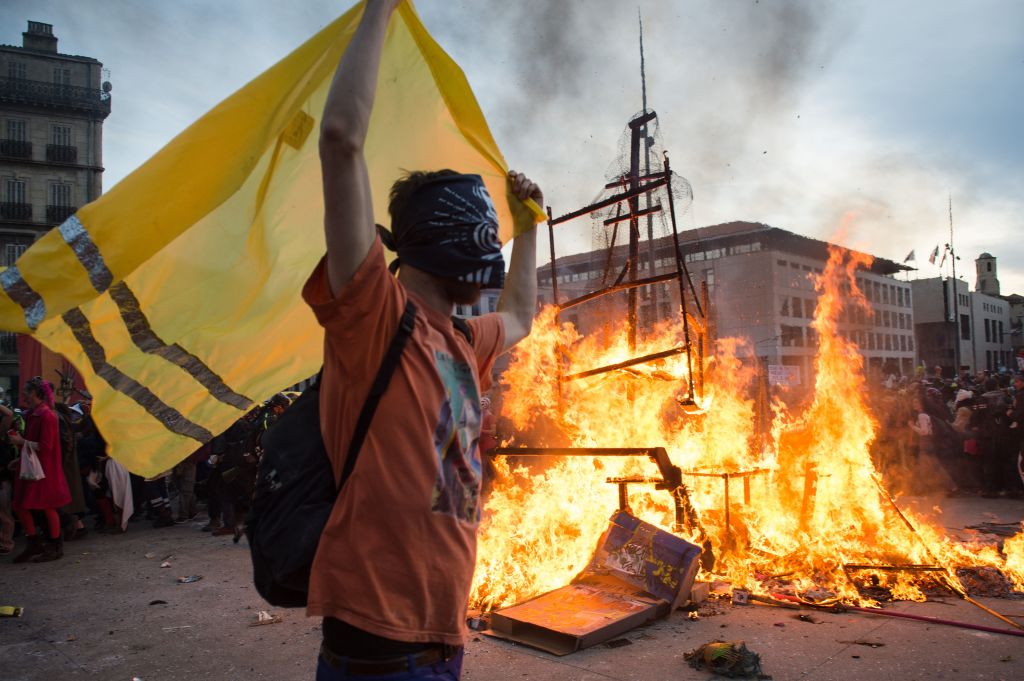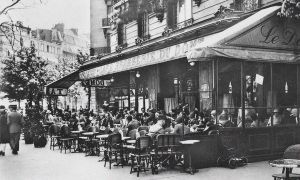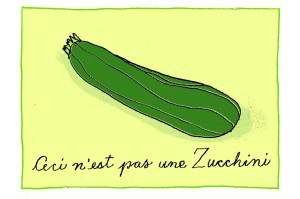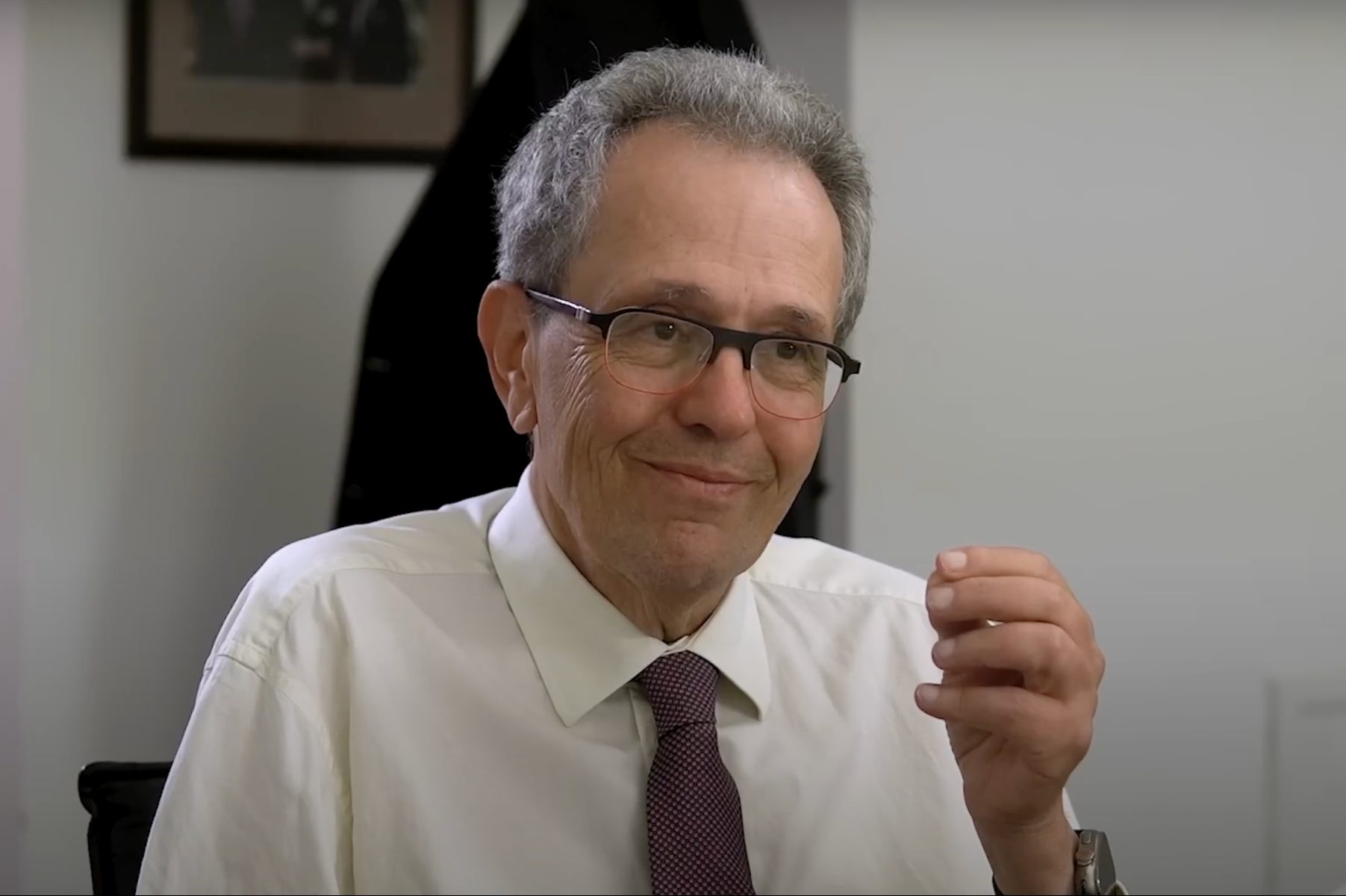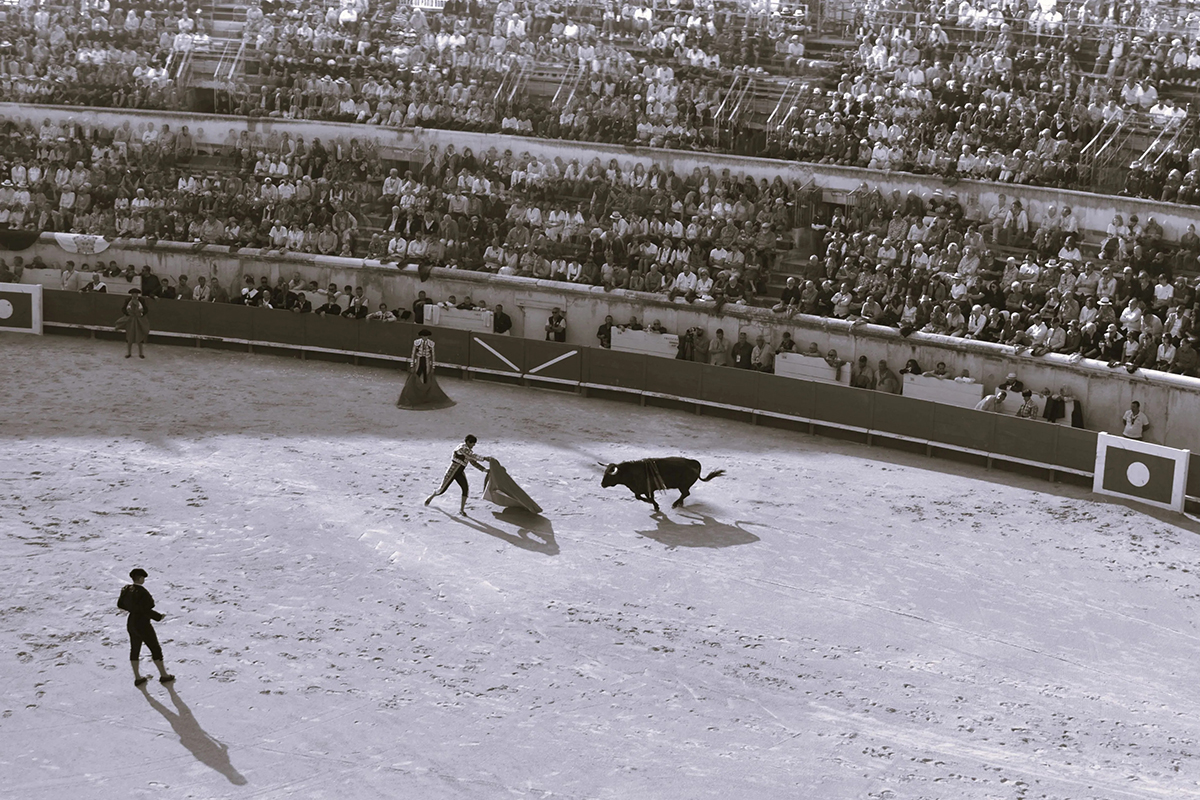There may be a touch of the Monday blues for Emmanuel Macron this morning as he scans the headlines in France. A new poll reveals that vaccine skepticism in his country has reached record levels, thanks to his recent belittling of the AstraZeneca vaccine. Sixty-one percent of those canvassed expressed their doubts about the vaccine, up 18 percent from last month. Only 23 percent said they had confidence in the AstraZeneca shot. In contrast, 75 percent of British people have faith in the vaccine.
But if the French are increasingly reluctant to be vaccinated, they are determined to enjoy the arrival of spring — COVID restrictions or not. In Marseille yesterday around 6,500 people danced and partied at a street carnival, many of them wearing fancy dress. ‘The young have had enough of being confined,’ said 26-year-old Romain. ‘There are no frail elderly here, only the young.’
The demographic was more diverse in Annecy, where around 1,000 people gathered on Sunday on the shore of the town’s lake for a Freedom festival. The sentiment was the same as in Marseille. ‘No more masks, no more constraints,’ cried the crowd. One of those present told reporters he wanted to experience ‘the joy and love of others without fear of a virus’.
Police eventually broke up the carnival in Marseille in the early evening, arresting nine people, as the city’s mayor, Benoît Payan, raged on Twitter: ‘I’m angry. The selfish attitude of some irresponsible people is unacceptable. Nothing justifies that we destroy the collective efforts to curb the virus.’ There was a similar response from the government.
At least the rebellions in Marseille and Annecy were peaceful unlike what has been unfolding in many towns and cities across France in recent weeks. From Blois to Bordeaux, Verdun to Toulouse and Rennes to Lyon, rioting has scarred towns and cities with police and firefighters bearing the brunt of the violence.
Police reinforcements from Paris were sent to Lyon earlier this month after several nights of rioting by youths, reportedly incensed by the arrest of local drug-dealers. A police station was hit by a home-made mortar firework, which increasingly is the weapon of choice for the rioters.
Police stations in Toulouse, Sarcelles (northern Paris) and Grenoble have also been targeted, while last October in Champigny-sur-Marne, southeast of Paris, the police station came under sustained mortar fire from around 40 youths in scenes that resembled a Middle Eastern war zone. The attackers then tried to smash their way into the station with iron bars but without success.
These riots have little to do with the covid restrictions; the forces behind them are more likely to be drug gangs or Islamists, encouraging bored youths to attack the police as a way of challenging Republican law.
This urban warfare is growing in frequency, audacity and ferocity, as Gérard Collomb predicted in 2018 when he resigned as interior minister, worn out by the job after 18 months. Collomb warned the then-prime minister, Édouard Philippe, that having seen at first-hand the situation in many inner-cities, ‘it’s the law of the strongest that prevails, that of the drug-dealers and the radical Islamists, who have taken the place of the Republic’. And he offered a chilling vision of the future if something was not done urgently: ‘We must have a shared vision because we live side by side… but I fear tomorrow we will live face to face.’
Nothing has been done. On the contrary the situation has deteriorated, spreading to provincial towns such as Châteauroux in central France. Drug gangs have imported inner-city violence to the town of 44,000 and last month a car received 14 rounds from a Kalashnikov assault rifle in what was thought to be a drugs turf war. Jérôme Retailleau, the regional secretary of the police union, expressed his exasperation at the lack of support from the government. ‘For more than 10 years we’ve warned about the dwindling numbers [of police],’ he said. ‘We’re now at the bare minimum operationally. Any lower and we’ll no longer be able to function.’
Seventeen years ago, the Châteauroux police had a force of 200, a figure twice that of 2021. In June last year the interior minister Christophe Castaner assured local politicians that there would be ‘solutions’ to the staffing shortage but the following month he was replaced by Gérald Darmanin and he has not followed up on the promises made by his predecessor.
What Collomb referred to as the ‘ghettoïsation’ of these towns and cities will have been exacerbated by the COVID restrictions. They will also widen the gulf between the ‘haves’ and the ‘have-nots’ after the pandemic, making it easier for the drug gangs and salafists to recruit from the ranks of the demoralized young.
This is the virus that threatens the long-term future of France, and Macron, like his predecessors in the Elysée, is no closer to finding a vaccine.
This article was originally published on The Spectator’s UK website.



